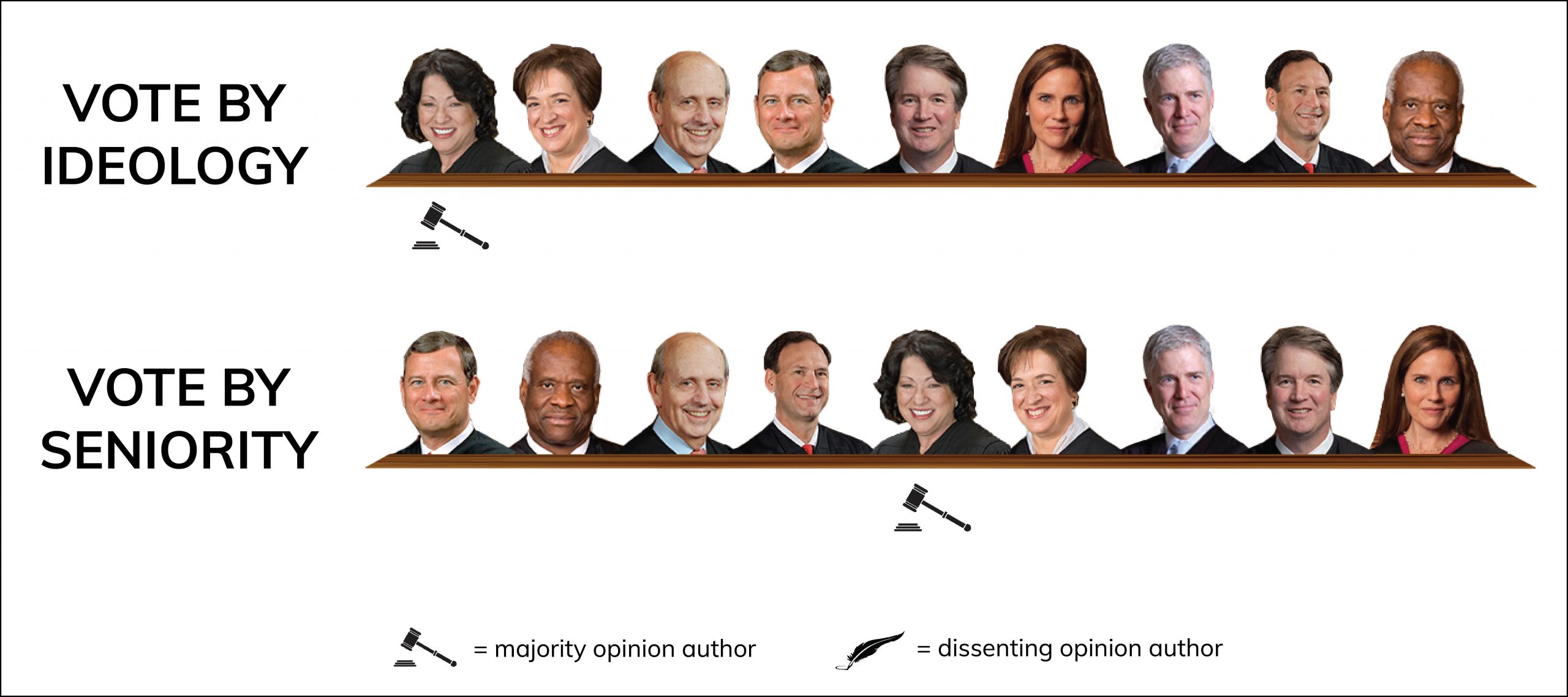Opinion analysis
Court rejects non-citizen’s challenge to criminal re-entry charge

on May 24, 2021 at 7:21 pm

The Supreme Court on Monday unanimously ruled against a non-U.S. citizen who was contesting his indictment for criminal re-entry into the country.
The case, United States v. Palomar-Santiago, involved Refugio Palomar-Santiago, a Mexican citizen who became a lawful permanent resident – that is, a green card holder – in 1990. Eight years later, an immigration judge found that his California conviction for driving under the influence was an aggravated felony under the federal immigration laws. Palomar-Santiago waived his right to appeal and was soon deported. But six years after his deportation, the Supreme Court ruled in Leocal v. Ashcroft that, under the relevant federal statute, DUI convictions like Palomar-Santiago’s are not aggravated felonies. As Justice Sonia Sotomayor’s opinion acknowledged, “Palomar-Santiago’s removal order thus never should have issued.”
In 2018, Palomar-Santiago was found living in the United States, and he was indicted for illegally re-entering the country after removal. Palomar-Santiago sought to dismiss the indictment on the ground that his original removal order was invalid under Leocal. The federal statute criminalizing re-entry requires a defendant who wants to bring a collateral attack on his underlying removal order to show that three conditions have been met: (1) He exhausted any administrative remedies “that may have been available”; (2) he was deprived of “the opportunity for judicial review”; and (3) the removal order was fundamentally unfair. Because the U.S. Court of Appeals for the 9th Circuit had ruled that defendants like Palomar-Santiago, whose removal orders lacked a legal basis, did not have to satisfy the first two conditions, the district court dismissed the indictment, and the 9th Circuit affirmed.
But in an eight-page opinion by Sotomayor, the Supreme Court disagreed. The court anchored its decision in the statutory text, finding that all three conditions are mandatory. Addressing Palomar-Santiago’s claim, Sotomayor explained that the administrative-exhaustion and deprivation-of-judicial-review requirements “are not satisfied just because a noncitizen was removed for an offense that did not in fact render him removable.” And with respect to the 9th Circuit’s rule, Sotomayor wrote, “When Congress uses ‘mandatory language’ in an administrative exhaustion provision, ‘a court may not excuse a failure to exhaust.’”
The court briefly addressed some of Palomar-Santiago’s arguments. First, Palomar-Santiago had urged the court to find that administrative review of a removal order should not be deemed “available” when an immigration judge incorrectly informs a non-citizen that the prior conviction constitutes a removable offense, particularly given the complexity of the law. The court rejected the principle that the substantive complexity of a legal argument could determine the availability of administrative remedies. Second, Palomar-Santiago had argued that the statutory requirements should not apply when a non-citizen’s collateral challenge is based on the substantive invalidity of the order, as opposed to a procedural flaw. But based on “the plain meaning of both ‘challenge’ and ‘collateral attack,’” the court was not persuaded that a substantively flawed removal order is not subject to “challenge,” despite Palomar-Santiago’s contention that the order was invalid at the time of entry. Finally, the court maintained that the clarity of the statutory scheme left no room for application of the constitutional avoidance canon, which Palomar-Santiago had asked the court to apply to construe the statute in his favor.
The direct implications of the court’s ruling are likely quite narrow. The decision reverses the 9th Circuit’s precedent with respect to collateral challenges to re-entry convictions. In 2020, almost a quarter of all re-entry prosecutions were filed in the 9th Circuit — a meaningful portion of the roughly 15,000 such cases, but certainly not a majority. The opinion is brief and focused on the text of the statute, while not engaging with the constitutional considerations. In fact, with respect to Palomar-Santiago’s constitutional arguments about permitting “the results of an administrative proceeding to conclusively establish a criminal offense,” the court asserted that they fell “outside the scope of the narrow question” upon which certiorari was granted.
On the other hand, the decision may have broader and potentially troubling consequences for non-citizens. The federal Immigration and Customs Enforcement has pursued removal orders based on criminal convictions that were later found to be inconsistent with the court’s interpretation of the law. For example, the Supreme Court has repeatedly found certain offenses charged as aggravated felonies — such as one-time drug possession (in Lopez v. Gonzalez), second drug possession (in Carachuri-Rosendo v. Holder), possession of marijuana with intent to distribute (in Moncrieffe v. Holder), and statutory rape (in Esquivel-Quintana v. Sessions) — to not constitute aggravated felonies. Under Monday’s ruling, federal prosecutors may be more likely to pursue criminal re-entry charges – with its enhanced sentences – against non-citizens who were wrongfully deported.


